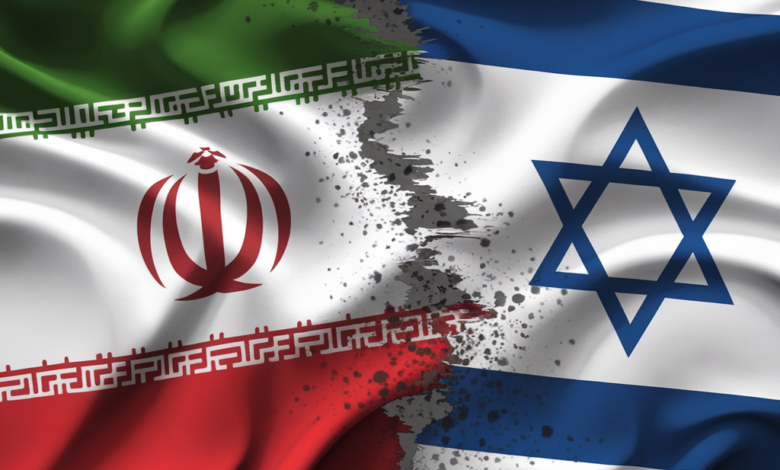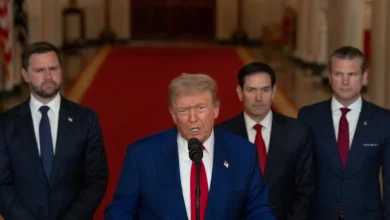A Deep-rooted Conflict: Iran and Israel

The complex and often volatile relationship between Iran and Israel has been a defining feature of Middle Eastern politics for decades. Rooted in historical, political, and ideological differences, this conflict continues to shape the region’s security landscape.
Historical Roots
The foundation of the conflict can be traced back to the establishment of the State of Israel in 1948. Initially, Iran under the Pahlavi dynasty maintained cordial relations with Israel. However, the 1979 Islamic Revolution marked a turning point. The newly established Islamic Republic, led by Ayatollah Khomeini, adopted an antizionist ideology and began supporting Palestinian militant groups, escalating tensions significantly.
Ideological Differences:
The Iran and Israel conflict stems from multiple layers of ideological clashes:
- Religious Disparity: Islam and Judaism, the dominant religions of the region, have historical and theological tensions that exacerbate the divide.
- Geopolitical Rivalry: Iran and Israel often disagree over influence and strategic dominance in the Middle East as two regional powers.
- Nuclear Ambitions: Both nations have pursued advanced military capabilities, including nuclear programs, which have raised global and regional security concerns.
Proxy Wars and Regional Tensions
Iran and Israel have engaged in proxy wars by supporting opposing factions in various regional conflicts:
- Iran’s Support: Groups like Hezbollah in Lebanon, Hamas in Gaza, and Shia militias in Iraq receive significant backing from Tehran.
- Israel’s Response: Israel frequently targets Iranian-backed forces in Syria and Lebanon through airstrikes to curtail their influence.
Recent Escalations
The conflict has seen significant escalations in recent years, further destabilizing the region:
- 2015 Nuclear Deal (JCPOA): The Joint Comprehensive Plan of Action aimed to curb Iran’s nuclear ambitions. However, tensions escalated after the U.S. withdrew from the agreement in 2018, leading to increased hostilities.
- 2020 Assassination of Qassem Soleimani: The U.S. drone strike killing the influential Iranian general led to missile retaliation by Iran, targeting U.S. bases in Iraq. This event heightened tensions globally.
- 2024 Israeli Airstrikes: Israel has continued targeting airstrikes against Iranian positions in Syria to counter Tehran’s regional expansion efforts.
The Path Forward
Finding a resolution to the Iran and Israel conflict remains an uphill task. A comprehensive solution must address:
- Regional Security: Building confidence and reducing threats.
- Nuclear Proliferation: Enforcing agreements that prevent further escalation of nuclear programs.
- Israeli-Palestinian Dispute: Resolving this critical issue to eliminate a major source of tension.
Efforts to promote dialogue and regional cooperation are essential. However, longstanding mistrust between the nations remains a significant hurdle.
A Deeper Dive into the Conflict
The Role of Religion: Religious beliefs are pivotal, as both sides draw on historical and theological claims that fuel hatred.
- Geopolitical Implications: The conflict is part of broader dynamics, including the Arab-Israeli conflict, Iran’s rise as a regional power, and the involvement of global players like the U.S. and Russia.
- Cyber Warfare: Cyberattacks have opened a new front in the conflict, with both nations accusing each other of sabotage and espionage.
- Economic Warfare: Economic sanctions and countersanctions have become tools of aggression, impacting domestic economies and further complicating regional stability.
The Human Cost:
The conflict has caused immense suffering on both sides:
- Civilians face casualties, displacement, and psychological trauma.
- Regional instability exacerbates humanitarian crises, affecting millions.
The Role of International Diplomacy
Diplomatic efforts to mediate the conflict have had limited success due to entrenched mistrust and divergent
- De-escalation: Preventing further military confrontations.
- Dialogue: Encouraging negotiations to resolve core issues.
Conclusion
The Iran-Israel conflict is multifaceted and has profound implications for the Middle East and beyond. Addressing its root causes requires a deep understanding of the historical, political, and religious factors. While peace remains elusive, persistent efforts toward dialogue and diplomacy are critical to building a more stable and peaceful region.
